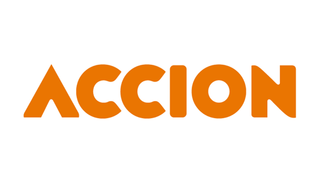Related Research Articles

The economy of Benin remains underdeveloped and dependent on subsistence agriculture and cotton. Cotton accounts for 40% of Benin's GDP and roughly 80% of official export receipts. There is also production of textiles, palm products, and cocoa beans. Maize (corn), beans, rice, peanuts, cashews, pineapples, cassava, yams, and other various tubers are grown for local subsistence. Benin began producing a modest quantity of offshore oil in October 1982. Production ceased in recent years but exploration of new sites is ongoing.

Microcredit is the extension of very small loans (microloans) to impoverished borrowers who typically lack collateral, steady employment, or a verifiable credit history. It is designed to support entrepreneurship and alleviate poverty. Many recipients are illiterate, and therefore unable to complete paperwork required to get conventional loans. As of 2009 an estimated 74 million people held microloans that totaled US$38 billion. Grameen Bank reports that repayment success rates are between 95 and 98 percent.

Microfinance is a category of financial services targeting individuals and small businesses who lack access to conventional banking and related services. Microfinance includes microcredit, the provision of small loans to poor clients; savings and checking accounts; microinsurance; and payment systems, among other services. Microfinance services are designed to reach excluded customers, usually poorer population segments, possibly socially marginalized, or geographically more isolated, and to help them become self-sufficient. ID Ghana is an example of a microfinance institution.

Accion is an international nonprofit. Founded as a community development initiative serving the poor in Venezuela, Accion is known as a pioneer in the fields of microfinance and fintech impact investing.
HBL Microfinance Bank Ltd, Pakistan is the largest microfinance bank of Pakistan, headquartered in the country’s capital, Islamabad. HBL MfB operates over 200 locations all over Pakistan. It is one of the oldest microfinance bank in the country with its roots in the credit and saving section of the Agha Khan Rural Support Program (AKRSP). The Bank offers a suite of conventional and digital banking products for its customers.

International Year of Microcredit is a special event of the United Nations which took place in the year 2005. The event highlighted microfinance as an instrument for socioeconomic development.
HDFC Bank Limited is an Indian banking and financial services company headquartered in Mumbai. It is India's largest private sector bank by assets and world's 10th largest bank by market capitalisation as of April 2021. It is the third largest company by market capitalisation of $127.16 billion on the Indian stock exchanges. It is also the fifteenth largest employer in India with nearly 150,000 employees.

Small Industries Development Bank of India (SIDBI) is the apex regulatory body for overall licensing and regulation of micro, small and medium enterprise finance companies in India. It is under the jurisdiction of Ministry of Finance, Government of India headquartered at Lucknow and having its offices all over the country.The SIDBI was established on April 02, 1990 by Government of India, as a wholly owned subsidiary of IDBI Bank. It was delinked from IDBI w.e.f. March 27, 2000. Its purpose is to provide refinance facilities to banks and financial institutions and engage in term lending and working capital finance to industries, and serves as the principal financial institution in the Micro, Small and Medium Enterprises (MSME) sector. SIDBI also coordinates the functions of institutions engaged in similar activities. It was established in 1989, through an Act of Parliament. SIDBI is one of the four All India Financial Institutions regulated and supervised by the Reserve Bank of India; other three are India Exim Bank, NABARD and NHB. But recently NHB came under government control by taking more than 51% stake. They play a statutory role in the financial markets through credit extension and refinancing operation activities and cater to the long-term financing needs of the industrial sector.

LAPO is a Nigerian organisation with a microfinance bank dedicated to self-employment through microfinance and an NGO, a non-governmental, non-profit community development organization focused on the empowerment of the poor and the vulnerable.

Legatum Limited, also known as Legatum, is a private investment firm, headquartered in Dubai, United Arab Emirates. Legatum is a partnership that uses its own funds to invest globally. The firm also invests in activities to promote entrepreneurship and free enterprise as well as anti-slavery, health and education initiatives.
Before Uganda's independence in 1962, the main banks in Uganda were Barclays ; Grindlays, Standard Bank and the Bank of Baroda from India. The currency was issued by the East African Currency Board, a London-based body. In 1966, the Bank of Uganda (BoU), which controlled the issue of currency and managed foreign exchange reserves, became the central bank and national banking regulator. The government-owned Uganda Commercial Bank and the Uganda Development Bank were launched in the 1960s. The Uganda Development bank was a state-owned development finance institution, which channeled loans from international sources into Ugandan enterprises and administered most of the development loans made to Uganda.
Non-Banking Financial Company (NBFC) is a company registered under the Companies Act, 1956 of India, engaged in the business of loans and advances, acquisition of shares, stock, bonds, hire-purchase insurance business or chit-fund business, but does not include any institution whose principle business is that of agriculture, industrial activity, purchase or sale of any goods or providing any services and sale/purchase/construction of immovable property.

The Gamelan Council – Asia-Pacific Public Health, Microfinance, and Development Centre is an international non-governmental, non-profit initiative addressing the public health, microfinance, and international development needs of communities in, on, and around the Pacific Rim. For these purposes, the Gamelan Council views the Asia-Pacific region quite broadly in line with APEC; the jurisdictions covered are claimed to account for approximately 65% of the world's population. The Council's activities, which include conducting research, making investments, and providing education and advice, are centrally coordinated.
Impact investing refers to investments "made into companies, organizations, and funds with the intention to generate a measurable, beneficial social or environmental impact alongside a financial return". At its core, impact investing is about an alignment of an investor's beliefs and values with the allocation of capital to address social and/or environmental issues.

Women's World Banking is a nonprofit organization that provides strategic support, technical assistance and information to a global network of 55 independent microfinance institutions (MFIs) and banks that offer credit and other financial services to low-income entrepreneurs in the developing world, with a particular focus on women. The Women's World Banking network serves 24 million micro-entrepreneurs in 32 countries worldwide, of which 80 percent are women. It is the largest global network of microfinance institutions and banks in terms of number of clients, and the only one that explicitly designates poor women as the focus of its mission.
Yezdi Hirji Malegam is an Indian chartered accountant who was the president of Institute of Chartered Accountants of India from 1979 to 1980. He was the chairman of National Advisory Committee on Accounting Standards. Since 27 November 2000, he has been a board member of Reserve Bank of India and holds a position as a trustee of The Willingdon Sports Club. He is also engaged in various other fields of business and finance. He has been a director of the Indian Central Bank's board for 17 years.
Microfinance Focus is an English-language microfinance international online news media and publication company based in Bangalore, India. Started in July 2006, Microfinance Focus publishes news and articles daily and is considered as a resource centre for the microfinance sector globally. Vikash is the founder of Microfinance Focus. Microfinance Focus has also been conferred "Microfinance Community Knowledge Promoter Award 2007 for Outstanding Community Support" by Solution Exchange in the year 2007.
Small finance banks are a type of niche banks in India. Banks with a small finance bank (SFB) license can provide basic banking service of acceptance of deposits and lending. The aim behind these is to provide financial inclusion to sections of the economy not being served by other banks, such as small business units, small and marginal farmers, micro and small industries and unorganised sector entities.

Kashf Foundation is a non-profit organization, founded by Roshaneh Zafar in 1996. Kashf is regarded as the first microfinance institution (MFI) of Pakistan that uses village banking methodology in microcredit to alleviate poverty by providing affordable financial and non-financial services to low income households - particularly for women, to build their capacity and enhance their economic role. With headquarters in Lahore, Punjab, Kashf has regional offices in five major cities and over 200 branches across the Pakistan.
Jana Small Finance Bank is a small finance bank that commenced operations on March 28, 2018, headquartered in Bangalore, India. The Reserve Bank of India issued a licence to the bank under Section 22 (1) of the Banking Regulation Act, 1949. Prior to becoming a bank, the company was India's largest microfinance institution, Janalakshmi Financial Services, founded July 24, 2006.